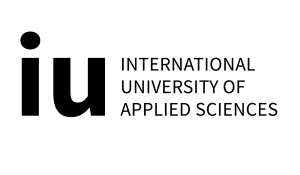I found myself suggesting Harvard Extension's masters in finance today, and realised that their masters in management, and in finance, are amongst the least discussed options around.
Rather than take a longer option, I suggested an applicant could consider a one-year MBA together with a "Harvard masters in finance, online through the extension school, after your MBA. You would get into the workforce earlier, be earning a much more valuable qualification in addition to access to a further alumni network, and learn from seriously impressive academics: Christopher Alt, Bülent Aybar, Ned Gandevani, John Komlos, Robert Neugeboren and Peter Marber teach on that course, as do impressive practitioners like Teo Nicolais, Faris Saah and Yvette Austin Smith. Viktoria Dalko from Hult is also part of the faculty."
I suspect that, because Extension is never suggested as an option, I am perhaps not offering good advice. What do you think?
Harvard University extension school?
Posted Mar 15, 2016 21:42
Rather than take a longer option, I suggested an applicant could consider a one-year MBA together with a "Harvard masters in finance, online through the extension school, after your MBA. You would get into the workforce earlier, be earning a much more valuable qualification in addition to access to a further alumni network, and learn from seriously impressive academics: Christopher Alt, Bülent Aybar, Ned Gandevani, John Komlos, Robert Neugeboren and Peter Marber teach on that course, as do impressive practitioners like Teo Nicolais, Faris Saah and Yvette Austin Smith. Viktoria Dalko from Hult is also part of the faculty."
I suspect that, because Extension is never suggested as an option, I am perhaps not offering good advice. What do you think?
Posted Mar 15, 2016 21:45
Masters in management http://www.extension.harvard.edu/academics/graduate-degrees/management-degree
Masters in finance http://www.extension.harvard.edu/academics/graduate-degrees/finance-degree
Masters in finance http://www.extension.harvard.edu/academics/graduate-degrees/finance-degree
Posted Mar 18, 2016 11:59
Interesting. Those programs seem like great values, especially for people who want the credibility of having "Harvard" on their CVs.
I suppose the questions I would have about such programs would be (1) what level of career services support does the extension school provide, and (2) does the program format allow for the same level of structure as would be offered for a similar program at an actual business school?
I suppose the questions I would have about such programs would be (1) what level of career services support does the extension school provide, and (2) does the program format allow for the same level of structure as would be offered for a similar program at an actual business school?
Posted Mar 18, 2016 12:19
My guess is that the extension school will simply pass students to the central careers team.
The format is very flexible so, yes, you could have something more of less identical in content to a CFA partner program but you could have something very highly specialised. There are 174 course options (some are duplicates) of which you do ten. http://www.extension.harvard.edu/academics/courses/courses-by-degree/Finance
The format is very flexible so, yes, you could have something more of less identical in content to a CFA partner program but you could have something very highly specialised. There are 174 course options (some are duplicates) of which you do ten. http://www.extension.harvard.edu/academics/courses/courses-by-degree/Finance
Posted Mar 18, 2016 12:21
$29,000 is great value for a Harvard degree but, for example, the Durham online masters in finance is the same price, and leads to an AACSB-accredited MBA rather than an ALM. https://www.dur.ac.uk/business/programmes/mba/online-mba-finance/
Posted May 04, 2016 19:01
Please correct me if I understood it wrong, are you suggesting that if I am unable to afford an MBA from a top ranked school and get an affordable MBA and later do Harvard online certification, I will have better chances of job placement?
Posted May 04, 2016 21:04
If you can afford this Harvard ALM then you can afford a good MBA.
PS The Illinois iMBA is a great example.
[Edited by Duncan on May 05, 2016]
PS The Illinois iMBA is a great example.
Posted May 07, 2016 12:46
May I ask you to please guide me. I am a dentist living in UAE with 2.5 years of experience and am looking for a career change, in management ( not necessarily in healthcare). I do not have a GMAT score but I am planning to prepare for it as I know the top rated schools want that. I can not afford to leave my job and join a Full Time MBA, because to be honest I can not afford them. So I am thinking to take an online MBA. But my concern is whether studying online instead of face to face with no prior business education a good idea ? Or do you suggest that it is better to take some pre MBA courses first before getting started? Also , can you please suggest online MBAs that offer to finish the course within 12-18 months ?
Posted May 09, 2016 20:29
I suspect that, because Extension is never suggested as an option, I am perhaps not offering good advice. What do you think?
While it's wonderful that Harvard offers the Extension School for people from many walks of life to get a quality education, there is no way that an Extension School degree is seen as being comparable to an actual HBS degree.
When someone graduates from Extension, they're not supposed to pretend that they have an HBS degree...they do *NOT* have access to the HBS alumni database (I am unsure if they'd have access to the main Harvard database), and employers do not confuse Extension with the main Business School.
I think it's a great option for someone who simply wants the academic/education side of the MBA (almost for their own personal development, or to put into action in an existing job), but it really won't open many doors (or if it does, they're not the same doors as the HBS degree).
Also -- FYI, I think this masters does indeed require that a student attend some of the classes on campus; it can't all be done online.
[Edited by ApplicantLab on May 09, 2016]
While it's wonderful that Harvard offers the Extension School for people from many walks of life to get a quality education, there is no way that an Extension School degree is seen as being comparable to an actual HBS degree.
When someone graduates from Extension, they're not supposed to pretend that they have an HBS degree...they do *NOT* have access to the HBS alumni database (I am unsure if they'd have access to the main Harvard database), and employers do not confuse Extension with the main Business School.
I think it's a great option for someone who simply wants the academic/education side of the MBA (almost for their own personal development, or to put into action in an existing job), but it really won't open many doors (or if it does, they're not the same doors as the HBS degree).
Also -- FYI, I think this masters does indeed require that a student attend some of the classes on campus; it can't all be done online.
Posted May 10, 2016 10:11
I don't think anyone here is equating those schools or suggesting that graduates or employers mix them up. Those are red herrings. However, the HES masters in finance seems to be equal in educational content to most other masters in finance outside the CFA partner program, and the quality of academics and the range of electives is exceptional. It can;t be completed only online: some seven-week summer school sessions would be required.
Extension graduates are alumni of Harvard University and, of course, become members of the Harvard Alumni Association.
Extension graduates are alumni of Harvard University and, of course, become members of the Harvard Alumni Association.
Posted Dec 07, 2016 13:37
I have read on some internet forum that only 5% of Hrvard Extention School students reach a degree. Anyone has any statistic?
Does it means they let anyone apply and then have complicated exams or does it mean that online students have lack of motivation? probably, this statistic 5% is not official and incorrect?
Does it means they let anyone apply and then have complicated exams or does it mean that online students have lack of motivation? probably, this statistic 5% is not official and incorrect?
Posted Dec 08, 2016 17:08
I would say that it's differing motivations: I'd imagine that for many students, earning a degree is not the primary goal. Instead, it's to skill-up through individual classes.
Posted Dec 08, 2016 20:57
I would say that it's differing motivations: I'd imagine that for many students, earning a degree is not the primary goal. Instead, it's to skill-up through individual classes.
so you belive its about motivation, rather then program complexity?
its written on their page: you have 2 attempts to sit an exam. if you GPA fall below 3.0 - School expells you.
so you belive its about motivation, rather then program complexity?
its written on their page: you have 2 attempts to sit an exam. if you GPA fall below 3.0 - School expells you.
Posted Dec 10, 2016 01:50
The statistic of around 5% sounds right to me, as a former HES student. It means that only a minority of students at HES intend to gain a degree. Certainly the assessment is demanding, but the vast majority of students who take the number of courses required for their degree will pass it.
Posted Dec 11, 2016 12:30
So you have pro and cons:
Pro:
- Extension school or not, it's Harvard, with the prestige and the educational level linked to that name
- You basically skip the admission process by passing 3 (hard to pass) courses
- Affordability
Cons:
- Initial investment is 7650$, and you may find yourself uncapable of reaching Harvard's standard level
- Even when admitted, your path is extremely fragile, if you fall out the 3.0 GPA for 2 semester you're requested to withdraw from the program
I saw there's a fight ongoing for taking away the "master in extension studies" name from the diplomas, finding some inequality in it.
http://www.thecrimson.com/article/2016/4/25/extension-school-rally-degrees/
My doubt, strenghtened by that 5% graduating, is that many jump in the chance to have Harvard education with less to no selectivity, but can't stand to the requested pace, thus falling in their studies and having the money they invested non to return.
Again, supposedly everyone should be able to pass any exam, someone just needs more application than others, but is this still true when it comes to Harvard's standards?
Pro:
- Extension school or not, it's Harvard, with the prestige and the educational level linked to that name
- You basically skip the admission process by passing 3 (hard to pass) courses
- Affordability
Cons:
- Initial investment is 7650$, and you may find yourself uncapable of reaching Harvard's standard level
- Even when admitted, your path is extremely fragile, if you fall out the 3.0 GPA for 2 semester you're requested to withdraw from the program
I saw there's a fight ongoing for taking away the "master in extension studies" name from the diplomas, finding some inequality in it.
http://www.thecrimson.com/article/2016/4/25/extension-school-rally-degrees/
My doubt, strenghtened by that 5% graduating, is that many jump in the chance to have Harvard education with less to no selectivity, but can't stand to the requested pace, thus falling in their studies and having the money they invested non to return.
Again, supposedly everyone should be able to pass any exam, someone just needs more application than others, but is this still true when it comes to Harvard's standards?
Posted Dec 11, 2016 13:13
No, look: it's NOT that 5% who enter the masters in finance pass it. It IS that 5% of all students graduate. Remember: most people take single classes at HES and do not enroll in degrees, or intend to. Maintaining a B is not that hard when the average grade is an A, as it is at most Ivy League schools.
Also, the initial investment us not $7500. You can take one course at a time. If you can't pass one, then that is your investment. However, if you can't pass one of these introductory classes then you probably cannot graduate from one of the other programmes you are looking at.
I can't see there being any realistic chance of changing the degree name, but since this is Harvard's only masters in finance I think ALM is just one more unusual degree type, like MM, MPhil, MStud, MAS, MProf....
[Edited by Duncan on Dec 27, 2016]
Also, the initial investment us not $7500. You can take one course at a time. If you can't pass one, then that is your investment. However, if you can't pass one of these introductory classes then you probably cannot graduate from one of the other programmes you are looking at.
I can't see there being any realistic chance of changing the degree name, but since this is Harvard's only masters in finance I think ALM is just one more unusual degree type, like MM, MPhil, MStud, MAS, MProf....
Posted Dec 26, 2016 19:00
I can't see there being any realistic chance of changing the degree name, but since this is Harvard's only masters in finance I think ALM is just one more unusual degree type, like MM, MPhil, MStud, MAS, MProf....
My suggestion would be: just call it like other degrees, and put "HES" as campus attended on in your studies.
Just like PennState does, you get the same degree but, in the field of attended campus, Worldcampus is specified.
My suggestion would be: just call it like other degrees, and put "HES" as campus attended on in your studies.
Just like PennState does, you get the same degree but, in the field of attended campus, Worldcampus is specified.
Posted Mar 24, 2020 21:05
I just saw that people with the MIT Micromasters get a huge saving on the ALM in finance, reducing the cost from around $35k to $23k.
Other Related Content
Should you get an Online or On-Campus MBA?
Article May 06, 2020
There are pros and cons to each type of program, which suit different kinds of applicants. How do you choose which format is right for you?
Hot Discussions
-
Looking for an affordable Online MBA with confirmed employability
Apr 04, 2024 869 9 -
Three schools with new online MBA offers
Apr 07, 2024 307 1



